Removing barriers
One requirement when developing the Law on Vocational Education is to institutionalize the policy of Resolution 29-NQ/TW on the separation of state management work from the administration of educational and training institutions, granting autonomy and self-responsibility to educational and training institutions; promoting the role of school councils. Regulations on school councils and autonomy of vocational education institutions have been issued. However, up to now, the implementation has been confusing and has only stopped at piloting autonomy at 3 colleges.
Sharing the above situation, Dr. Pham Do Nhat Tien pointed out a number of reasons that create barriers in the implementation organization. These are the divergence in perception of school autonomy; binding autonomy rights with the requirement to self-guarantee expenses; the pull of group interests; and weak capacity in implementation organization.
With the innovative thinking of law-making and enforcement to meet the requirements of national development in the new era, Resolution No. 71-NQ/TW of the Politburo on breakthroughs in education and training development (Resolution 71) has removed the above barriers with the provision: "Ensuring full and comprehensive autonomy for higher education institutions and vocational training institutions regardless of the level of financial autonomy".
Dr. Pham Do Nhat Tien said that this is a breakthrough policy in the spirit of development creation. From there, vocational training institutions can proactively adapt and promptly meet the new requirements of a rapidly changing and unpredictable labor market under the profound impact of the fourth industrial revolution, especially artificial intelligence.
However, the new governance model also comes with potential challenges and risks. The biggest challenge is the huge workload when one person holds both key positions, which will create great pressure. The biggest risk is that the concentration of power can lead to lack of democracy, abuse of power and authoritarianism, negatively affecting the promotion of school autonomy. Another potential risk is the reduction of stakeholder participation, limiting the foundation of autonomy and accountability.
Therefore, to bring the Party's policies into life, institutionalization needs to ensure harmony between management requirements and development creation requirements.
Need for careful roadmap, effective support and monitoring mechanisms
Providing solutions, Dr. Pham Do Nhat Tien said that, first of all, the construction of the Law on Vocational Education (amended), decrees and guiding circulars need to be adjusted and supplemented, focusing on the following contents:
Clearly define full and comprehensive autonomy and accountability commensurate with autonomy. Clearly define the role, authority and responsibility of the Party Secretary, who is also the head of the vocational training institution.
At the same time, regulations on decentralization and delegation of power in the leadership, administration and management apparatus of vocational education institutions, along with mechanisms for controlling power, go hand in hand with promoting grassroots democracy. Build a coordination mechanism between state management levels, professional social organizations, and enterprises in vocational education administration.
Completing the system of legal documents and the above-mentioned guiding regulations is not only an administrative requirement but also a key strategy for comprehensive innovation of vocational education in Vietnam.
However, Dr. Pham Do Nhat Tien emphasized that from legal documents to implementation, great preparations are required at both the system and school levels. In the immediate future, it is necessary to build and perfect the vocational education management information system (TVET-MIS); restructure the vocational education system towards strong decentralization of management of vocational education institutions to localities; innovate the management of vocational education institutions according to output results based on the KPI system; train and foster modern management capacity, digital capacity and artificial intelligence; build a system to monitor students after graduation.
“All of the above work requires time. Therefore, a careful roadmap is needed, along with effective support and monitoring mechanisms, to ensure the policy of ensuring comprehensive and full autonomy for vocational training institutions to truly come into life,” Dr. Pham Do Nhat Tien emphasized.
Source: https://giaoducthoidai.vn/bao-dam-quyen-tu-chu-toan-dien-day-du-cho-co-so-giao-duc-nghe-nghiep-post747719.html



![[Photo] General Secretary To Lam attends the 8th Congress of the Central Public Security Party Committee](https://vphoto.vietnam.vn/thumb/1200x675/vietnam/resource/IMAGE/2025/10/4/79fadf490f674dc483794f2d955f6045)
![[Photo] Bustling Mid-Autumn Festival at the Museum of Ethnology](https://vphoto.vietnam.vn/thumb/1200x675/vietnam/resource/IMAGE/2025/10/4/da8d5927734d4ca58e3eced14bc435a3)

![[Photo] Solemn opening of the 8th Congress of the Central Public Security Party Committee, term 2025-2030](https://vphoto.vietnam.vn/thumb/1200x675/vietnam/resource/IMAGE/2025/10/4/f3b00fb779f44979809441a4dac5c7df)

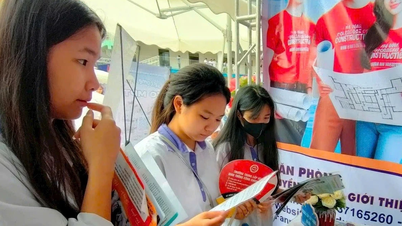
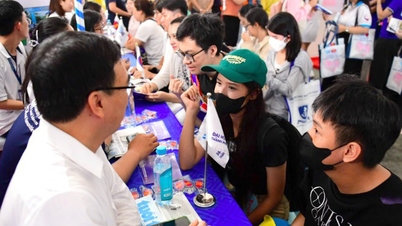


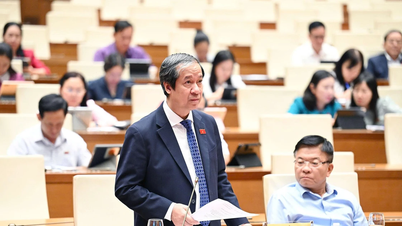
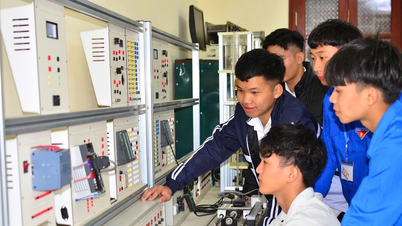
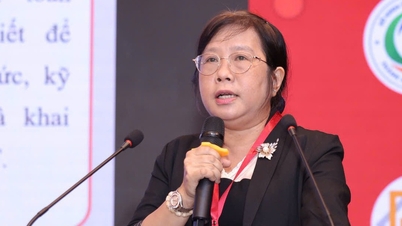














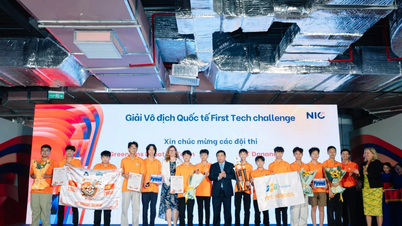
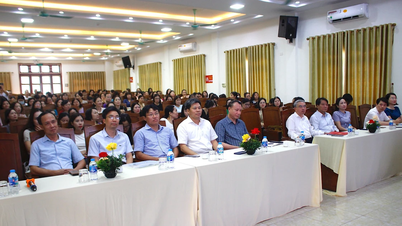

























![[VIDEO] Summary of Petrovietnam's 50th Anniversary Ceremony](https://vphoto.vietnam.vn/thumb/402x226/vietnam/resource/IMAGE/2025/10/4/abe133bdb8114793a16d4fe3e5bd0f12)

![[VIDEO] GENERAL SECRETARY TO LAM AWARDS PETROVIETNAM 8 GOLDEN WORDS: "PIONEER - EXCELLENT - SUSTAINABLE - GLOBAL"](https://vphoto.vietnam.vn/thumb/402x226/vietnam/resource/IMAGE/2025/7/23/c2fdb48863e846cfa9fb8e6ea9cf44e7)

































Comment (0)